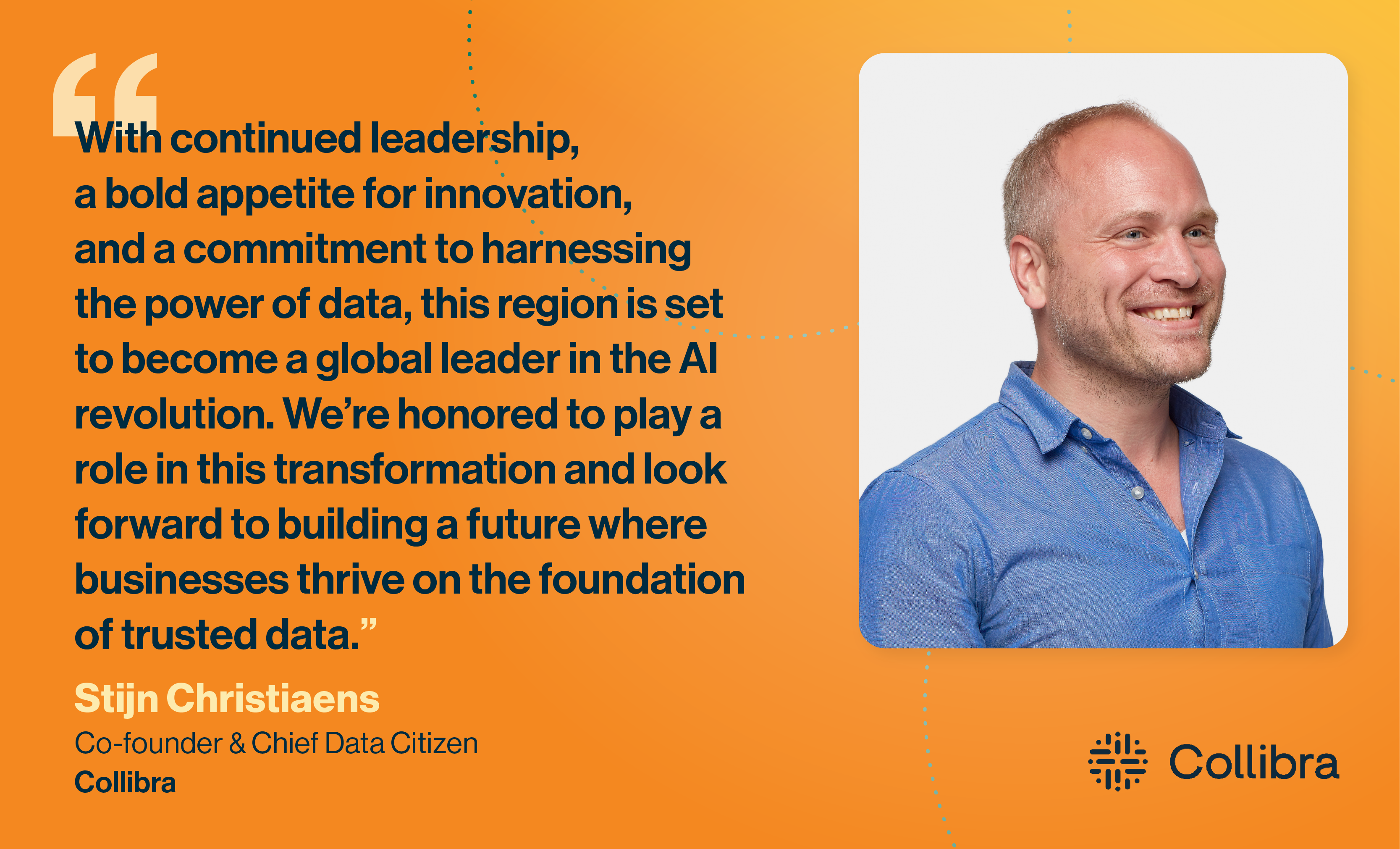This blog is part of a series highlighting common AI pitfalls and how organizations can avoid them.
Bridging the knowledge gap: How an AI-literate organization helps mitigate compliance failures and protect business integrity
According to DataCamp’s State of Data and AI Literacy Report, 62% of leaders recognize an AI literacy skill gap within their organizations, yet only 25% have implemented organization-wide AI training programs. This glaring disparity highlights a critical barrier to success: a lack of AI literacy that prevents collaboration, ethical governance and strategic alignment.
Meanwhile, the European Union’s Artificial Intelligence Act adds urgency, especially for businesses operating within the EU. Article 4 mandates that organizations deploying AI systems ensure their staff possess sufficient knowledge, education and training to govern AI effectively. With the regulation taking effect in February, companies—including those based in the United States, but doing business in the EU—must prioritize AI literacy to stay compliant.
In this article, we explore why AI literacy is essential, the risks of overlooking it and actionable steps organizations can take to foster a culture of AI literacy at every level.
What Is AI literacy?
The European Union’s Artificial Intelligence Act defines it as: “Skills, knowledge and understanding that allow providers, deployers and affected persons to make informed deployment of AI systems while gaining awareness about the opportunities, risks and potential harm AI can cause.”
This includes understanding AI’s capabilities, limitations, risks and ethical considerations. Crucially, AI literacy isn’t limited to data scientists and engineers. It extends to business leaders, policymakers and end-users, empowering them to align AI initiatives with strategic goals, foster ethical practices and maintain compliance with regulations.
Why AI literacy is important
AI literacy goes beyond technical expertise; it builds a shared organizational understanding of AI’s capabilities, limitations and ethical implications in practical AI use cases. Without it, organizations face significant challenges and risks :
- Negative brand impact: Companies may accidentally deliver AI that doesn’t align with their mission and values
- Reputational risks: Poor governance or ethical missteps, such as biased AI models, can erode trust and damage an organization’s reputation
- Operational failures: Miscommunication between technical and non-technical teams can derail projects as stakeholders fail to align on goals and expectations
- Weak oversight: Lack of AI literacy in governance teams weakens oversight, leading to poor decisions, regulatory risks, and operational failures. Without human oversight, organizations may blindly trust flawed AI recommendations
Conversely, organizations prioritizing AI literacy foster collaboration, ethical governance and strategic alignment. A common language enables business leaders and technical teams to work cohesively, ensuring AI initiatives support broader business goals.
Why it’s urgent to fix
Understanding the importance of AI literacy is only the first step. Addressing it has never been more critical due to:
- Competitive advantage: Organizations with AI-literate teams are better positioned to innovate responsibly and maintain public trust
- Scaling risks: Rapid AI adoption without proper literacy frameworks risks embedding inefficiencies and biases into systems. These issues often require costly remediation later
- Regulatory requirements: The EU AI Act mandates that staff involved in AI deployment have sufficient literacy. Article 4 of the EU AI Act will become applicable for providers and deployers of AI systems in February 2025, and enforcement by national market surveillance authorities will start on 2 August 2025. Organizations should ensure a general understanding of the AI Act within their organization and consider their role (provider or deployer of AI systems) and the level of risk (high-risk or not). This is true for any organization operating within the European Union
How Collibra can help build AI literacy
Organizations can bridge the AI literacy gap with the right strategies and supporting tools from Collibra.
1. Build a common understanding – A shared AI glossary ensures alignment and clear communication
✅ Collibra provides a centralized business glossary to standardize AI terminology across teams.
2. Train leadership – Decision-makers need foundational AI knowledge and visibility into AI initiatives to align strategies with business goals
✅ Collibra offers leaders a single pane of glass for all AI initiatives, with documentation helping them to grasp the big picture of AI use cases at once.
3. Simplify AI understanding – AI use cases can be complex to understand and manage, especially for non-technical stakeholders. Every person on the AI Council needs to understand how their space pertains to AI to bring diverse perspectives and collaborate effectively
✅ Collibra simplifies AI use case understanding and governance with a built-in model and AI use case documentation, ensuring clarity and accessibility for all stakeholders.
4. Ensure AI traceability & build trust – AI practitioners and business teams need to be knowledgeable about how AI models function, what data they rely on and the regulatory safeguards required for responsible use
✅ Collibra enables teams to trace AI decision-making by mapping data provenance, visualizing AI workflows through interactive diagrams, and tracking model inputs and outputs. It also helps educate users on compliance requirements, ensuring AI use cases adhere to ethical and regulatory standards while remaining transparent and trustworthy.
5. Foster collaboration – Breaking silos between technical and non-technical teams enables diverse perspectives and informed decision-making
✅ Collibra simplifies AI lifecycle management with collaboration tools, alerts and notifications.
6. Learn by doing – The 70/20/10 learning model shows that 70% of learning comes from hands-on experience, making practical engagement crucial.
✅ Collibra provides user-friendly tools to manage AI use cases, track data lineage, and ensure compliance.
7. Develop social learning – Community-driven learning helps organizations stay ahead of evolving AI trends and best practices
✅ Collibra connects users through the Collibra community and shares AI governance insights on a regular basis.
8. Refresh learning continuously – AI is rapidly evolving, making ongoing education essential. Formal training must be updated regularly to keep pace with new regulations, risks and best practices
✅ Collibra University offers regular training and certification programs on data and AI to keep teams informed and compliant.
It’s time to invest in AI literacy
AI literacy, as defined by the EU AI Act, encompasses the skills, knowledge and understanding needed for providers, deployers and affected individuals to make informed decisions about AI while recognizing its opportunities, risks and potential harms. Achieving true AI literacy means informing stakeholders about AI risks, providing insights into reliability and ensuring they understand the traceability of AI systems. It also means helping them put AI literacy into practice—enabling them to design, deploy and manage AI solutions that are not only transparent and trustworthy, but also fully compliant with evolving regulations and ethical standards.
Organizations can accelerate this journey with data and AI platforms like Collibra, embedding literacy into their culture and strategies. As the AI landscape evolves, the question isn’t whether to invest in AI literacy but how quickly your organization can adapt. How ready are you to bridge the AI knowledge gap?
Stay tuned for our next article in this series.





